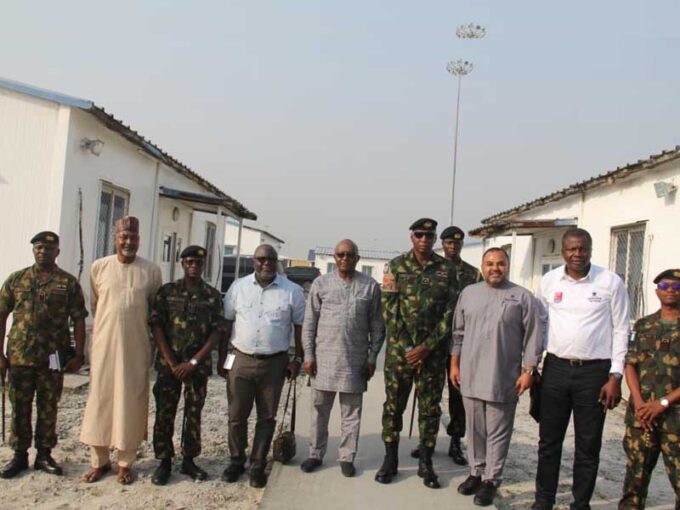Factfile with Lanre Alfred
Let me say this as plainly as possible: I know a media hit job when I see one. And what has just been unleashed against Bayo Ojulari, the Group CEO of NNPCL, smells not just of calculated sabotage, but of that uniquely Nigerian cocktail of political mischief, misplaced entitlement, and old-guard bitterness masquerading as public concern.
I’ve watched the manufactured outrage rise like poorly staged theatre. Suddenly, a coalition with the conveniently self-righteous name “Coalition of Nigerian Patriots for Good Governance” emerges with fire in its lungs and venom on its lips. Their target?Not some long-serving cabal draining NNPCL from within for years. No. Their ire is for the man who’s barely warmed his seat—Bayo Ojulari.
Let’s be honest: this isn’t about refineries. This is about resistance to reform. I’ve covered this industry long enough to know that the louder the outrage, the more terrified someone is of losing access to old, rotten privileges.
The accusation? That Ojulari “suspiciously” shut down the nation’s refineries after assuming office. Suspicious, they say. But if you’ve spent even a minute understanding how broken those facilities are, or more importantly, how long they’ve been broken, you’d know that what Ojulari did was less a shutdown and more an intervention. A necessary pause before reengineering. And frankly, if you were expecting him to continue the charade of “rehabilitation” without a proper technical audit or performance management framework, then you’re part of the problem.
Let’s not pretend we don’t know how these refineries have functioned. They have been black holes, swallowing billions without results, test-running without refining, “functional” on paper but failures in reality. If anyone claims otherwise, I challenge them: show us the data. Show us the output. Show us the petroleum products that rolled out of Warri, Kaduna, or Port Harcourt in those magical test runs.
The truth? These refineries have been a national embarrassment. Bayo Ojulari didn’t break them. He inherited them. And from where I sit, he’s doing the one thing no one before him dared to do: tell the uncomfortable truth, then act on it.
Now, the coalition also claims he wants to privatise NNPCL assets and sell them to “cronies.” That’s rich. Because if anyone knows Ojulari’s track record, at Shell, at Renaissance, across every major energy corridor on this continent, you’d know he doesn’t operate in crony circles. He doesn’t curry favour. He builds structures. He fixes things.
So let me ask: if he wanted to sell off national assets to friends, would he begin by opening NNPCL’s books, publishing operational data, and introducing transparency protocols unheard of in the company’s recent history? Would he be inviting scrutiny, encouraging independent audits, and pledging performance-based reforms if his goal was clandestine looting? I think not.
What I see in Ojulari is not a saboteur. I see a man who understands that national pride means nothing when pipelines are broken, refineries are rusting, and a nation as oil-rich as Nigeria is still importing fuel like a beggar.
I’ve seen this before. Every time a competent technocrat arrives with a map in one hand and a mirror in the other, the old guard panics. They cry sabotage, corruption, and “institutional capture.” Why? Because their games don’t work in the light. Ojulari has dared to switch on the light.
Even the allegation of crude oil diversion reeks of desperation. It’s the kind of half-truth you plant when you know the public is tired, angry, and ready to believe the worst. But again, I ask: Where’s the evidence? Where are the logs? The manifests? The shipping documents?
We’ve come to a dangerous place in this country where reformers are crucified not because they failed, but because they succeeded in ruffling the right feathers. And believe me, Bayo Ojulari is ruffling the right feathers. The ones that have been feeding fat on opacity and poor governance.
Since he assumed office in April, he has not only outlined an ambitious five-year strategy that includes attracting $60 billion in investment, boosting production to 3 million barrels per day, and expanding domestic refining capacity, he’s also rolled up his sleeves to start doing the work. And let’s not romanticise that work. It’s messy. It’s painful. It steps on toes. But it is necessary.
And yet, we pretend he woke up one morning and decided to derail the President’s economic agenda? That’s laughable. If you understand anything about President Tinubu’s calculus in leadership, you’d know he doesn’t back weak horses. Ojulariwasn’t thrown into that position to preserve the past—he was placed there to dismantle it and chart a future.
Of course, dismantling old networks makes enemies. Of course, those who no longer have the keys to the kitchen will cry foul. I get it. But they should at least spare us the sanctimony.
I’ll say this again: this is not a refineries’ debate. This is a legacy war. It’s about whether the NNPCL remains a political cash cow or becomes a professionally run, globally competitive energy company. And let me tell you, that decision has already been made. The tide has turned.
It’s also amusing, if it weren’t tragic, that those screaming about refineries being “shut down” are the same people who clapped when those same refineries were cannibalised, looted, stripped, and milked dry by decades of mismanagement. Where were these coalitions then? Where was the patriotic fervour when billions were burned in the name of “Turn Around Maintenance” that turned nothing around?
Here’s what I think: we have to stop being a nation that eats its best minds. BayoOjulari is one of the best this industry has produced in decades. And rather than applaud his courage, his competence, and his refusal to play dirty politics, we are sharpening knives.
To those whispering about “Ojulari’s plan to dominate NNPCL,” I say this: Maybe domination isn’t the problem; maybe it’s the kind of domination that scares you. The kind that doesn’t ask for kickbacks. The kind that doesn’t take a cut. The kind that rebuilds institutions instead of hollowing them out.
If we want to have a serious conversation about the petroleum sector, let’s have one. Let’s talk about pipeline security. About real-time data management. About local refining capacity. About credible audit trails. But let’s stop pretending Bayo Ojulari is the villain. He’s not. He’s the man cleaning up a mess we all chose to ignore for too long.
So, before we crucify Ojulari, let’s ask ourselves: are we reacting to failure, or are we punishing success?
Because I, for one, know a reformer when I see one. And I know what it costs to be the man who says “no” in a room that’s used to “yes.”
Ojulari has said “no” to the old ways. And that, not refinery shutdowns, is the real reason he’s under attack.
Let’s not be complicit in the takedown of our own future. Let’s not crucify the man sent to rescue us from the rot we’ve normalised.


















Leave a comment